Oct
7
2010
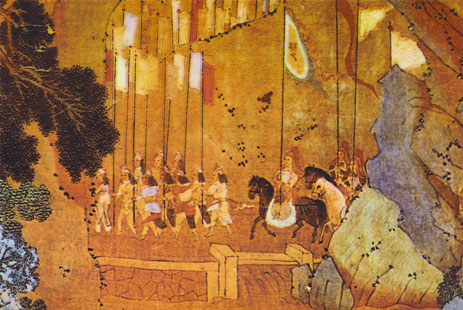
Just as the Restoration, through death in Babylon, miraculously reunited Ephraim and Judah in a new body, the attacks on the Firstfruits church miraculously reunited Jew and Gentile. The Restoration body (pictured in Ezekiel 37) was a type of the Firstfruits church. In the big picture, this new body appears in the Bible Matrix at Maturity. It was an army from the grave, a multitude of shiny individuals united and animated by the Spirit of God, moving as a single shining entity. The Creation week pictures this as flocks of birds and schools of fish. The Tabernacle images it as clouds of incense. This is the warrior bride, terrible as an army with banners.
Light – Ark-Word (Sabbath) -
Make every effort to keep the unity of the Spirit
through the bond of peace.
Continue reading
Comments Off | tags: Creation Week, Ephesians, Ezekiel, Feasts, Literary Structure, Paul, Solomon, Tabernacle | posted in Bible Matrix, Ethics, The Restoration Era
Aug
30
2010
or Who Is My Neighbour?
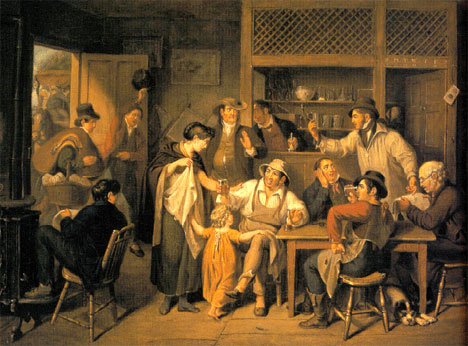
The content of this post has been revised and included in Bible Matrix II: The Covenant Key.
1 comment | tags: Feasts, Literary Structure, Luke, Tabernacles | posted in Bible Matrix, Christian Life, Creation, Ethics
Aug
9
2010
An Exhortation to Be A Fruitful Tree
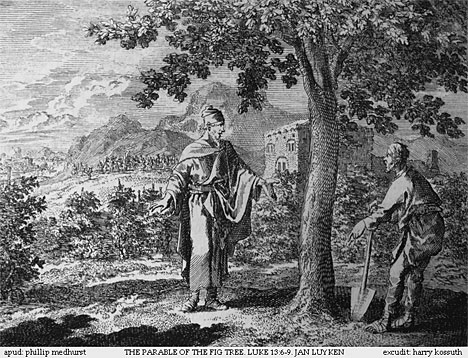
Tabernacles was the final annual feast, a Godfest to be thrown by Jews as a ministry to Gentiles. At the Feast of Clouds [1], every household temporarily became a new house of God, a “local branch” of the Tabernacle, a “priesthood of all believers.” Of course, we see this fulfilled in the book of Acts. Just as we see Paul exhort the Ephesians (Gentiles!) to put on the mediatorial body-armour of the High Priest, [2] his final exhortation to the Roman Christians alludes to not only Israel’s feasts but Israel’s priesthood. Pretty much every church he established was a “booth” made of natural Jewish branches and ingrafted Gentile branches. [3] At Pentecost, the same cloud that received Jesus filled the house. [4] Now every household of faith was a Tabernacle, a glorious cloud with a government of human angel-elders. [5] In the Bible’s literary structure, a recurring motif at Tabernacles is good fruit, godly offspring. God wants more than just a covering of leaves. As in Eden, future generations hang upon wise government.
Continue reading
8 comments | tags: AD70, Add new tag, Atonement, Doug Wilson, Feasts, Genesis, Laver, Literary Structure, Paul, Roman Catholicism, Romans, Systematic typology, Tabernacles, Temple | posted in Bible Matrix, Biblical Theology, The Last Days
Jun
7
2010
or The Real Hebel
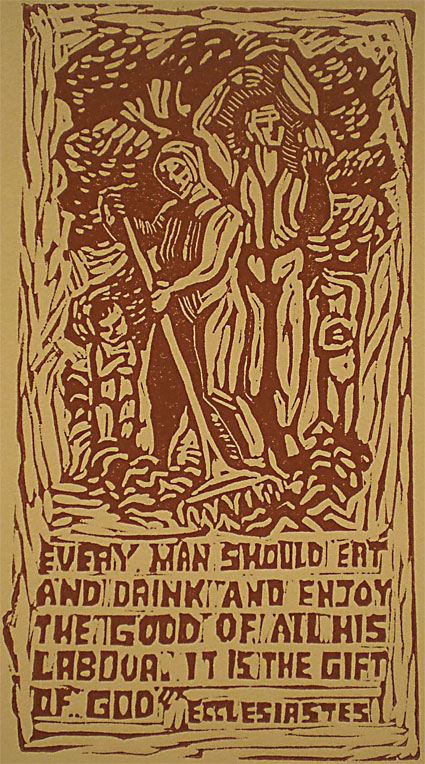
James Jordan was asked whereabouts in the Bible is the best place to start reading it:
We should start in Genesis. What we should really do is pass a law that for five years you may only read Genesis through Joshua over and over again. So you get the foundation… When the Psalms and Ecclesiastes were written, they were written for people who were steeped in the earlier Scriptures. Ecclesiastes is not some mysterious book of philosophy. Ecclesiastes is all about the Feast of Tabernacles. The Feast of Tabernacles is literally the Feast of “Clouds.” That’s what sukkoth means. You get branches down out of a tree to make a little lean-to. Those branches up on that tree are a cloud. When you make a tree-house down here out of those branches, you’ve got your own little cloud. After a week it disintegrates. But God in His cloud, in His Tabernacle, goes on and on.
Continue reading
5 comments | tags: Ecclesiastes, Feasts, Hermeneutics, James Jordan, Solomon, Tabernacles | posted in Biblical Theology, Christian Life, Quotes
May
17
2010

“…he will remove her veil, then hand her the barley offering, and say, ‘If you have been faithful to your husband, this water won’t harm you. But if you have been unfaithful, it will bring down the LORD’s curse — you will never be able to give birth to a child, and everyone will curse your name.’”
The content of this post has been revised and included in Bible Matrix II: The Covenant Key.
See Jesus With Long Hair and Trinitarian Complexity in Samson.
Comments Off | tags: Bible Matrix, Chiasm, Feasts, Numbers 5 | posted in Biblical Theology
May
10
2010
or Feasts in Psalm 116

I love the LORD, because He has heard my voice and my supplications. Because He has inclined His ear to me, therefore I will call upon Him as long as I live.
Continue reading
Comments Off | tags: Bible Matrix, Feasts, Literary Structure, Psalms | posted in Biblical Theology
Apr
16
2010
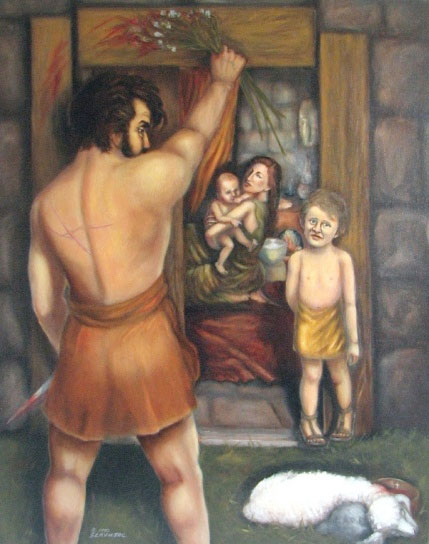
“Do not forgive them, Father. They know exactly what they are doing.”
THIS POST HAS BEEN REMIXED AND INCLUDED IN GOD’S KITCHEN: THEOLOGY YOU CAN EAT AND DRINK
You must be logged in to see the rest of this post.
Join now for a year for $15!
Throughout the Bible there are two doors, or more correctly, a door and a window.
Both of them involve blood. The first takes us out of the world. The second puts us in government. The first is the Passover door, the second is a window in Jericho. One mirrors the other chiastically in the journey from slavery to Sabbath.
Continue reading
Comments Off | tags: AD70, Atonement, Feasts, Halden Doerge, Passover, Pentecost, Tabernacle | posted in Biblical Theology, Quotes, The Last Days
Apr
2
2010

In Jesus’ seven words, He fulfills not only Israel’s feasts and the Tabernacle, but makes all Creation new.
Continue reading
3 comments | tags: Crucifixion, Feasts, Tabernacle | posted in Biblical Theology
Mar
30
2010
or Sword Swallowers

Part 1 is here.
Then the mother of Zebedee’s sons came to Him with her sons, kneeling down and asking something from Him. And He said to her, “What do you wish?” She said to Him, “Grant that these two sons of mine may sit, one on Your right hand and the other on the left, in Your kingdom.” But Jesus answered and said, “You do not know what you ask. Are you able to drink the cup that I am about to drink, and be baptized with the baptism that I am baptized with?” They said to Him, “We are able.” So He said to them, “You will indeed drink My cup, and be baptized with the baptism that I am baptized with; but to sit on My right hand and on My left is not Mine to give, but it is for those for whom it is prepared by My Father.” (Matthew 20:20-23)
When we say “Amen,” we’d better mean it. It is a reception of the Covenant, binding us to it legally for better or worse. Ray Sutton writes:
Continue reading
Comments Off | tags: Baptism, Feasts, Herod, Isaiah, James Jordan, Jericho, Luke, Ray Sutton | posted in Biblical Theology, The Last Days, Totus Christus



































